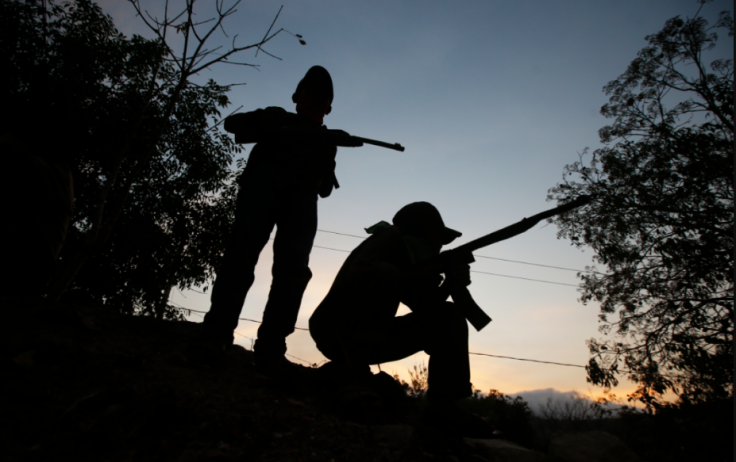
A former DEA official claimed that alleged cartel bounties on Department of Homeland Security officials are false and would seek to justify the deployment of more U.S. army forces in the streets.
Speaking to Infobae, Mike Vigil, former top DEA official, said "the statement is not true." "It is absolutely absurd because neither ICE nor CBP are a threat to cartels, and if they took action against them they would be in trouble. It's absurd that cartels are focusing on them because many agencies in the U.S., including the DEA, are only focused in migrants," he added.
He went on to say it's the first time there are accusations of threats from cartels against federal agents in the U.S., but reiterated his belief that they are fake: "I think it's the first time because cartels don't threaten U.S. federal agents. There have been shootouts and stuff like that, but this is unheard of," he added.
Mexican President Claudia Sheinbaum also denied being aware of allegations, initially made by DHS Secretary Kristi Noem.
Speaking at her daily press conference, Sheinbaum said her administration was not aware of them, adding that the alleged offers take place inside the U.S. and therefore it is American officials who should inform their Mexican counterparts about it.
"I asked the Secretary of Security and Citizen Protection and there is no information that the U.S. sent to Mexico," she said. "They were talking about the U.S. We are requesting the information but we had none, we became aware of it through the DHS' publication."
Sheinbaum went on to say Mexican intelligence is not aware that cartels are placing bounties on U:S. immigration officials, but she will wait for the U.S. report to delve into the matter further.
DHS said in a statement that the threats include payments of up to $50,000 for assassinations of senior officials, $5,000–$10,000 for kidnappings or non-lethal assaults, and $2,000 for doxxing or gathering intelligence on agents. The department said the bounty system is part of "an organized campaign of terror against federal law enforcement."
According to the department, cartel-linked networks have deployed "spotters" — individuals stationed on rooftops in neighborhoods such as Chicago's Pilsen and Little Village — who are equipped with firearms and radio communications to track the real-time movements of ICE and CBP agents.
DHS also alleges that sympathetic domestic groups have provided logistical support, including doxxing federal personnel and staging protests designed to obstruct enforcement operations.
© 2025 Latin Times. All rights reserved. Do not reproduce without permission.





